CFTC Regulatory Entity

In this article
Trading in futures contracts has rapidly extended beyond conventional physical and agricultural commodities into many financial instruments such as foreign currencies, the US and foreign government securities, and US and foreign stock indices since the 1970s. The creation of CFTC was the result of this expansion.
The Commodity Futures Trading Commission, a.k.a CFTC, is an independent US government body established in 1974 to supervise the US derivatives markets, including futures, swaps, and some types of options.
The Commission’s mandate is to oversee the regulation of commodities futures and options markets in the United States.
This guide will explain all the nitty-gritty of the CFTC regulatory body.
What’s the purpose of CFTC?
The CFTC’s mission is to promote transparent, competitive, and effective financial markets. They also attempt to protect consumers and citizens of the United States.
This entails enacting variation margin limits, trade reporting guidelines, and other controls to avoid abusive behaviour involving derivatives and other instruments governed by the Commodity Exchange Act (CEA).
To accomplish their purpose of promoting secure markets, the regulatory agency sifts through past data and looks for prospective dangers.
This means that emerging technology, like blockchain, and products, such as binary options, may all be reviewed by the CFTC.
CFTC structural framework
The CFTC organisation includes the Chairman’s and Commissioners’ offices and the agency’s 13 operating divisions and offices. As the agency’s principal executive, the chairman leads the CFTC organisation.
The CFTC is made up of five commissioners appointed by the president and confirmed by the Senate. Commissioners serve staggered five-year terms.
The president appoints one of these commissioners as chair, and no more than three commissioners from the same political party can serve simultaneously.
These five commissioners sit on committees that oversee agriculture, energy and environmental markets, global markets, market risk, and technology.
CFTC comprises of six divisions that include:

Division of Clearing and Risk
The Division of Clearing and Risk oversees derivatives clearing organisations (DCOs) and other market participants involved in the clearing process. Futures commission merchants, swap dealers, substantial swap participants, and large traders are among them.
Market Participants Division
The Market Participants Division is primarily responsible for overseeing derivatives market intermediaries such as commodity pool operators, commodity trading advisors, futures commission merchants, brokers, retail foreign exchange dealers, swap dealers, major swap participants, and designated self-regulatory organisations.
Division of Market Oversight
The Division of Market Oversight promotes open, transparent, fair, competitive, and secure markets by regulating derivatives platforms and swapping data repositories.
Division of Data
The Division of Data (DOD) is in charge of the Commission’s enterprise data strategy and approaches to data governance. The department develops data architecture and centres of excellence for data analytics, visualisation, and storage.
Division of Enforcement
The Division of Enforcement reviews and prosecutes alleged Commodity Exchange Act and Commission regulatory violations.
Division of Administration
The Division of Administration is in charge of the Commission’s internal management of its business, people, financial, technological, security, and strategic, operational resources.
CFTC regulations
The CFTC oversees the derivatives markets in the United States. In addition, commodity futures and options markets and over-the-counter (OTC) markets are included.
The CFTC controls the following organisations adequately oversee these markets: trading organisations such as designated contract markets, which are exchanges that host futures trading, and swap execution facilities, which are platforms that allow participants to purchase and sell swaps.
The CFTC’s Division of Clearing and Risk is entirely in charge of managing derivatives clearing organisations (DCOs) such as the options clearing corporation.
The OCC is the world’s largest DCO and works under the jurisdiction of the CFTC.
The CFTC also regulates swap data repositories, which provide a central location for swap data reporting and recordkeeping.
In addition, the CFTC controls all intermediaries—entities that act as agents for others when dealing with futures, swaps, and options.
Some of these intermediaries include:
- Commodity pool operators are funds that pool investor contributions to trade on the futures and commodities markets.
- Commodity trading advisors are individuals who provide investment advice in the commodity and futures markets.
- Futures commission merchants accept orders to buy or sell commodities for future delivery.
- Introducing brokers have direct interaction with a client but delegate floor operations and trade execution to another futures merchant.
- Swap dealers are individuals or businesses that act as swap brokers, making swap markets or entering into swap contracts with counterparties.
The CFTC announced in March 2014 that it was considering Bitcoin regulation. Since then, the CFTC has stated that Bitcoin is a commodity under the CEA.
The CFTC concluded in 2015 that cryptocurrencies were lawfully categorised as commodities for trading purposes.
However, due to market volatility and other circumstances, the CFTC identified several hazards involved with virtual t currencies.
In 2017, the CFTC referenced the US Securities and Exchange Commission’s (SEC) warning against digital token sales and initial coin offerings (ICOs), which can unlawfully attract investors with promises of big profits.
In recent years, the CFTC has increased its efforts to prosecute digital assets fraud and misrepresentation.
Final thoughts
To meet new difficulties in the digital age of the twenty-first century, the CFTC is departing from its original function as a regulator of traditional commodity products-related futures and options contracts.
Fintech is propelling innovation in financial markets around the world. Cloud computing and algorithmic trading are examples of new technologies, distributed ledgers, artificial intelligence and machine learning, network cartography, and many others.
These technologies can have a significant, if not transformative, impact on CFTC-regulated markets and the agency itself.
Accordingly, the CFTC intends to take an active role in overseeing this developing innovation.
The CFTC is an important regulator of financial markets. Without such legislation and regulators, market participants may be susceptible to unscrupulous people’ deception and, as a result, lose trust in our capital markets.
As a result, capital markets may become inadequate at allocating financial resources to the most deserving means of production and productive economic activity, to the detriment of investors, consumers, and society.
Time will tell whether the agency is up to the new problems it will encounter.
Jason Morgan is an experienced forex analyst and writer with a deep understanding of the financial markets. With over 13+ years of industry experience, he has honed his skills in analyzing and forecasting currency movements, providing valuable insights to traders and investors.
Forex Content Writer | Market Analyst
Relevant Posts

CMVM Regulatory Entity
[top_three_brokers] The CMVM is a forex broker company set up in Portugal that provides financial…
Read more
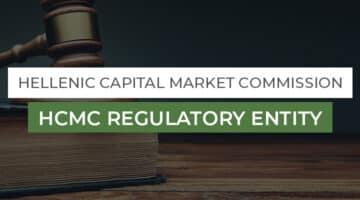
HCMC Regulatory Entity
[top_three_brokers] HCMC, the Hellenic Capital Market Commission, regulates the compliance of financial services firms with…
Read more

ASX Regulatory Entity
[top_three_brokers] ASX is an Australian Securities exchange created by the merger of Sydney Features and…
Read more
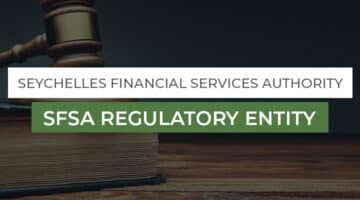
SFSA Regulatory Entity
[top_three_brokers] SFSA stands for Seychelles Financial Services Authority. This regulatory entity supervises non-bank financial services…
Read more

KNF Regulatory Entity
[top_three_brokers] In Poland, the Polish Financial Supervision Authority is in charge of the supervision of…
Read more
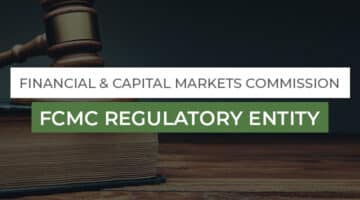
FCMC Regulatory Entity
[top_three_brokers] The Financial and Capitals Market Commission is an independent regulatory entity set up in…
Read more

FSPR Regulatory Entity
[top_three_brokers] The Financial Service Providers Register is a regulatory entity that has authority over financial…
Read more
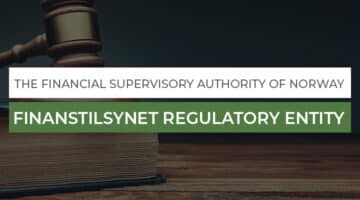
FINANSTILSYNET Regulatory Entity
[top_three_brokers] FINANSTILSYNET (The Financial Supervisory Authority of Norway) Regulatory Entity is an independent government agency…
Read more

CMA Regulatory Entity
[top_three_brokers] The CMA started operating informally in the '50s and kept on working effectively until,…
Read more
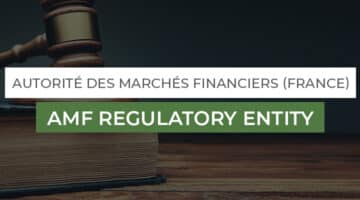
AMF Regulatory Entity
[top_three_brokers] AMF, the Autorite des Marches Financiers, also known as a financial market authority, is…
Read more

CMVM Regulatory Entity
[top_three_brokers] The CMVM is a forex broker company set up in Portugal that provides financial…

HCMC Regulatory Entity
[top_three_brokers] HCMC, the Hellenic Capital Market Commission, regulates the compliance of financial services firms with…

ASX Regulatory Entity
[top_three_brokers] ASX is an Australian Securities exchange created by the merger of Sydney Features and…

SFSA Regulatory Entity
[top_three_brokers] SFSA stands for Seychelles Financial Services Authority. This regulatory entity supervises non-bank financial services…

KNF Regulatory Entity
[top_three_brokers] In Poland, the Polish Financial Supervision Authority is in charge of the supervision of…

FCMC Regulatory Entity
[top_three_brokers] The Financial and Capitals Market Commission is an independent regulatory entity set up in…

FSPR Regulatory Entity
[top_three_brokers] The Financial Service Providers Register is a regulatory entity that has authority over financial…

FINANSTILSYNET Regulatory Entity
[top_three_brokers] FINANSTILSYNET (The Financial Supervisory Authority of Norway) Regulatory Entity is an independent government agency…

CMA Regulatory Entity
[top_three_brokers] The CMA started operating informally in the '50s and kept on working effectively until,…

AMF Regulatory Entity
[top_three_brokers] AMF, the Autorite des Marches Financiers, also known as a financial market authority, is…

